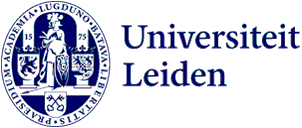
‘Young people are cannon fodder in the Central African Republic’
A bloody civil war has raged for years in the Central African Republic. PhD candidate Crépin Mouguia points out a tragic pattern: young people have been recruited as fighters or soldiers for generations and thus fuel the conflicts.
It is one of the poorest countries in the world: the Central African Republic (CAR) in the middle of Africa. A civil war has raged there between Muslims and Christians since 2012. More than a million people have fled the country. The current situation is the result of the turbulent precolonial and colonial past, PhD candidate Crépin Marius Mouguia emphasises.
‘Those who try to remain neutral risk “social death”’
Elite benefits from resources
In 1960 the country gained independence from France. Partly due to the lack of a democratic tradition, the republic has since been ruled by presidents who came to power through violence or corruption. The country is rich in mineral resources such as gold, diamonds and copper, but only a small elite benefits from them, says Mouguia.
Few alternatives for young people
‘This history has made the CAR an arena for violent confrontations’, Mouguia notes. ‘Young people have limited opportunities to shape their own lives in these difficult circumstances. As a result, both those in power and rebel leaders use them as cannon fodder. Neither cares much about their living conditions.’
Young people’s motives
Why then do young people join these groups? ‘Some do so mainly to get protection and survive the conflicts. They are attracted by the promise of future opportunities: integration into the military or vocational training. Others mainly want to plunder or take revenge.’ The chances of good education and work are limited, so it is difficult for many to make real choices. Those who try to remain neutral risk ‘social death’, says Mouguia, isolation, for example, which makes it difficult to find a job. They may need to know powerful commanders to be able to follow training.

Peace mission
The United Nations has been trying to restore peace through the MINUSCA peace mission since 2014, but has not succeeded. What is needed to break the cycle of violence? ‘In my dissertation I mainly describe the context in which young people live. I do not provide solutions or recipes. In any case, my analysis shows that the state needs more authority. The recruitment of young people as fighters is the result of a broken society. Anyone involved in peacebuilding, such as the UN mission, must understand this context and target aid programmes for young people, such as education on peace and non-violence, school rehabilitation, vocational training and income-generating activities. That can help bring lasting peace and prevent new unrest.’
Crépin Marius Mouguia teaches anthropology at Bangui University, the country’s only public university. He previously worked as a humanitarian aid worker. His PhD research is part of Professor Mirjam de Bruijn’s Connecting in Times of Duress programme. This is a partnership between the African Studies Centre Leiden and Bangui University. Other partners are UNICEF the Netherlands and Voice4thought.
Text: Linda van Putten
